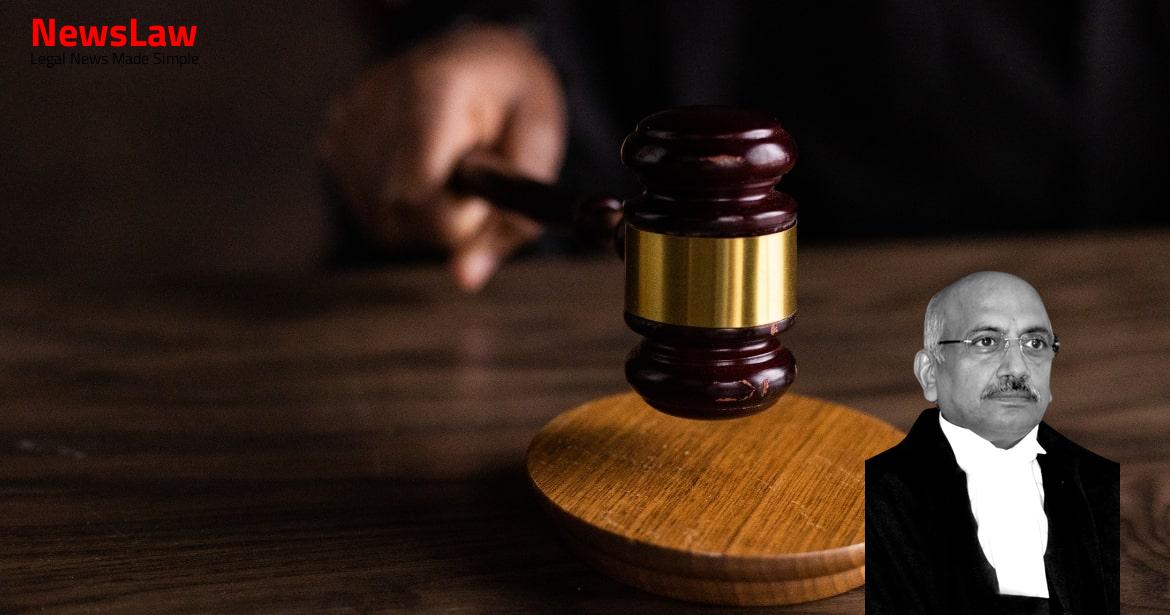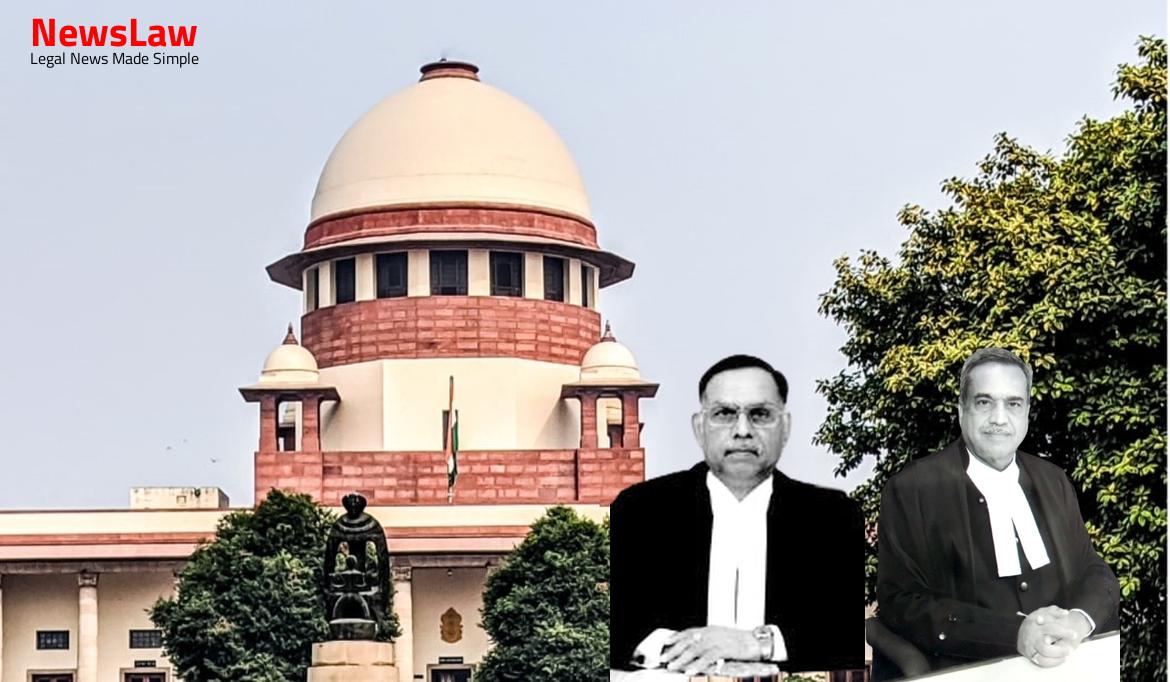In a recent legal case, the High Court delved into the intricacies of culpable homicide, common intention, and the implications of actions taken in the heat of passion. The court’s analysis led to a modification of convictions in a case involving a sudden altercation that resulted in tragic consequences. This summary highlights the key legal aspects of the case and the rationale behind the court’s decision.
Facts
- Appellant and deceased had a sudden fight over a stolen pigeon.
- Co-accused hit deceased on the head with a rod in the heat of passion.
- Deceased died as a result of the blow.
- Appellant and co-accused disposed of the deceased’s body in a canal.
- Appellant charged under Sections 302/34 and 201 IPC.
- Co-accused charged under Sections 302 and 201 IPC.
- Both convicted by Sessions Court and sentenced accordingly.
- Conviction under Section 201 IPC was maintained.
- Deceased, appellant, and co-accused had consumed liquor.
- High Court modified the conviction from Section 302 IPC to 304 Part-I IPC.
- Sentence imposed on the appellant and co-accused was 12 years’ rigorous imprisonment and a fine of Rs. 10,000.
- The scuffle between deceased and appellant was on the spur of the moment and in the heat of passion.
Also Read: Challenging Legal Analysis in 1989 Scheme Eligibility Case
Arguments
- The High Court should have modified the conviction to Section 304 Part-II instead of 304 Part-I based on the reasoning provided by the High Court itself.
- Counsel has referred to the case of Uday Singh v. State of U.P. where the conviction was modified to Section 304 Part-II by the Supreme Court.
- The appellant has served more than three years of sentence and requests a reduction in sentence by converting the conviction to Section 304 Part-II IPC.
- The respondent argues that the case law cited by the appellant is not applicable to the current case.
- Ms. Jaspreet Gogia, representing the State of Punjab, asserts that there are no valid reasons to overturn the conviction and sentence handed down by the High Court.
- The respondent believes that the appellant has already been treated leniently and there are no valid grounds to challenge the decision.
Also Read: Legal Analysis of Unilateral Cancellation of Registered Sale Deed
Analysis
- The incident happened one day prior to the date of panchayat elections.
- The scuffle leading to the deceased’s death was a sudden fight in the heat of passion upon a sudden quarrel.
- The injuries were caused in a sudden unarmed fight with no common intention to kill the deceased.
- It is unclear who inflicted the fatal injury as both the appellant and Gainda Singh were involved in strangling the deceased.
- The appellant and Gainda Singh are convicted of culpable homicide not amounting to murder under Section 304 Part II.
- The accused are not liable to be convicted under Section 302 IPC as there was no prior concert or common intention to commit murder.
- The judgment in the case of Uday Singh v. State of U.P. supports the appellant’s position for Section 304 Part I IPC conviction.
- The appellant’s conviction is to be modified to one under Section 304 Part II IPC while maintaining the conviction for the offence under Section 201 IPC.
- All accused were found complicit in the homicide of Sarfraj.
- A-1 attacked the deceased with a knife and caused a fatal injury to his neck.
- The other accused assisted in the crime by holding the hands of the deceased.
- Exception 4 to Section 300 IPC is applicable to the case.
- Accused found responsible for the death of Sarfraj.
- Accused liable for conviction under Section 304 Part II IPC.
- A-1 served a sentence of seven years, A-2 to A-4 served four years imprisonment.
- Altercation during discussion behind the dhaba led to a sudden fight where A-1 attacked the deceased with a knife.
Also Read: Legal Analysis on Special Procedures and Dismissal Orders in Police Force Case
Decision
- The appellant has been sentenced to undergo rigorous imprisonment for seven years and a fine of Rs.10,000/- is maintained.
- Conviction for the offence under Section 201 IPC results in a sentence of three years’ rigorous imprisonment and a fine of Rs.500/-.
- The bail granted earlier is cancelled, and the appellant is required to surrender before the trial court to serve out the remaining part of the sentence.
- The judgment of the High Court is modified, converting the conviction from Section 302 to Section 304 Part II IPC, and the accused are sentenced to the period already undergone, resulting in their immediate release.
Case Title: KALA SINGH @ GURNAM SINGH Vs. THE STATE OF PUNJAB (2021 INSC 519)
Case Number: Crl.A. No.-001040-001041 / 2021



